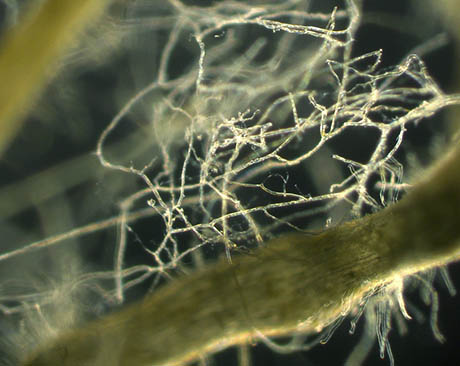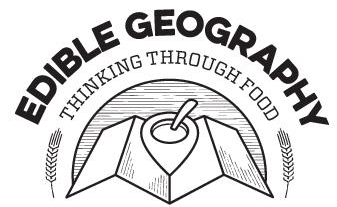
IMAGE: Mycorrhizal fungi connected to plant host roots. Photo: Yoshihiro Kobai, NWO.
Last week, I received a press release promising that, as of April 14, 2014, “the organic world will have its own space on the Internet”: .bio.
I was, naturally, rather intrigued. Was .bio to be a Gibsonian matrix, in which otherwise discrete, glitchy, flesh-and-blood organisms could upload and outsource their voltage-based central nervous systems to a branded, interconnected digital network?
Or, instead, perhaps .bio represented a ground-breaking attempt to create a human-accessible portal to the so-called “Internet of Plants” — the network of mycorrhizal threads through which individual tomato plants spread the word about imminent aphid attacks and other pressing issues?
Sadly, ICANN’s vision for the new .bio domain is not quite that ambitious. Dot bio has been launched as part of a huge expansion of the Internet’s naming system, including other top-level domains such as .farm, .land, and .sexy, and is envisaged as a “very special new domain space” related to “many different fields linked to science, nature, and life.” Starting Dot, the company licensed to operate the new extension, suggests that a .bio extension is perfect for biologists, autobiographers, and, especially, anyone who wants to demonstrate their “commitment to an organic lifestyle.”
Indeed, because “bio” is commonly used to refer to organically grown products in several European Union countries, any would-be registrant who is connected to agriculture, food, and farming (whether as producer, processor, or retailer) will not be allowed to buy a .bio name unless they comply with the International Federation of Organic Agriculture Movements’ Principles of Organic Agriculture.
Further, in their .bio policy document (pdf), Starting Dot explains that names that violate organic agricultural principles, such as <gmo.bio>, <fertilizers.bio> or <pesticides.bio>, will be banned.
In the next breath, however, Starting Dot trumpets the desirability of a .bio extension for biotech companies and laboratories. It seems that the nomenclature through which we police various categories of nature is as fuzzy in URL as it is IRL.

